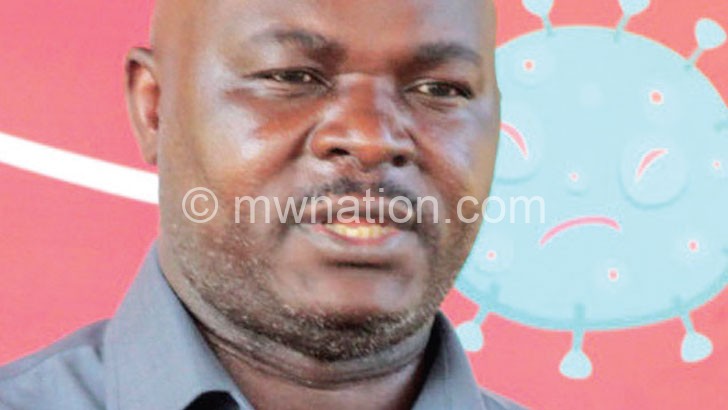Stigma in quarantine
On April 9, Virginia Phiri, a clinical technician at Bwaila Hospital in Lilongwe, was recalled from tracing suspects of Covid-19, the coronavirus disease discovered in China last December.
“That day,” says the 30-year-old, “I woke up so determined to follow up on people likely to have been exposed to Covid 19 in Area 47 and Kamuzu Barracks. However, we were called back to Bwaila to collect samples from a 44-year-old suspect who had just returned from Canada.”
Virginia collected the samples and put the patient in an isolation room.
“I attended to him until the nurse came. Around 9pm, the hospital confirmed that the patient had Covid 19,” she says.
Virginia hastily returned to the hospital for an emergency night shift.

The patient succumbed to an underlying condition the following day, becoming one of three deaths from 57 confirmed Covid-19 cases in Malawi,” she recalls.
For the next 14 days, Phiri and all health workers who came into contact with the patient were quarantined at the College of Medicine campus in Lilongwe.
She recalls: “Fear gripped me. What if I was infected? Would I go through the process the patient went through? Would my body successfully fight the virus? Will I die as fellow health workers in Italy, Spain and the US?
“The fear of leaving my family was overpowering. I kept asking God to forgive me.”
Virginia’s husband Edward and mother feared that she had contracted the novel coronavirus discovered in China in December 2019.
“I could hear mom’s voice as if she is crying over the phone. My children kept asking: Where is mom?” she states.
The husband says he had a lot of questions the first time he visited her in quarantine.
“I had lots of questions. I thought she had contracted the virus and neighbours were discriminating against us. It took about three days to accept the situation,” he says.
With her family depressed, Virginia felt lonelier—and cried all night to release pent-up emotions.
“I was emotionally wrecked and I couldn’t fall asleep till morning. Sometimes, I wept to feel better.”
Much to her delight, Virginia and her colleagues tested Covid-free after 14 days.
Discrimination
The period in isolation was not without rude awakenings.
“What angered me most was the discrimination from fellow health workers and security personnel at the quarantine centre,” she says. “I felt to see that even my workmates were running away and talking ill about us. When bringing food to us, they could just drop it somewhere and call us to go and collect it as if we were lepers.”
Virginia felt “worse than a prisoner” as the guards were preventing people from visiting people in quarantine.
“We negotiated with them that we were not prisoners and promised to observe all safety measures to protect our loved ones,” she says.
Even maids and drivers refused to give them services afraid of contracting the virus, she says.
From Virginia’s experience, Solomon Chomba, president of the Physicians Assistants Union of Malawi, says there is need to integrate mental health support in the Covid 19 response.
He states: “Most of them develop anxiety, fear, stress and depression due to lack of early mental health intervention for Covid 19 patients, quarantined healthcare workers and their families.
“Working in an unsafe environment without adequate personal protective equipment, discrimination, stigma, fear of death and detachment from loved ones are some of the causes for worry among health workers.”
World Health Organisation (WHO) director-general Tedros Adhanom Ghebreyesus warns against discriminatory tendencies, stressing that “this is the time for solidarity, not stigma”.
He states: “There are disturbing reports in many countries, in all regions, about discrimination related to Covid 19.
“Stigma and discrimination are never acceptable anywhere at any time, and must be fought in all countries.”
WHO is working actively to address the impacts of the pandemic on mental health, says Ghebreyesus.
“Working with mental health experts around the world, WHO has produced technical guidance for individuals and health workers, recognising the enormous strain they’re under,” he explains.
Edward stated that when her wife was in isolation, the family resolved to ensure “very few people were aware of the situation”.
“Not even our children were told for fear of discrimination, violent attacks from community members and mental conditions,” he says.
In Nkhotakota, father of a 26-year-old man confirmed to have Covid 19 said his family members were repeatedly denied access to markets and a vigilante group has been agitating to expel them from the village.
In Mzirawaingwe Township, Mzuzu, communities threatened to torch an ambulance when heath workers went to visit contacts of confirmed cases in their midst. At Luwinga on the northern side of the ever-green city, communities vandalised equipment and property at a football technical centre earmarked to be a Covid-19 quarantine centre.
Minister of Health Jappie Mhango says: “Discrimination must not come anywhere near the pandemic as it does not give hope to those affected for recovery.”
As the fear for Covid-19 transmission in communities fuels stigma, Professor Nyovase Madise, an epidemiologist who sat on a WHO advisory board, urges Malawians to destigmatise the new pandemic which has left many with the fear of the unknown and others. “Stigma can be an even greater virus than a corona when suspects do not come forward for testing, driving the disease underground and further into communities. We learnt about the destructive power of stigma in the fight against HIV,” she states.





